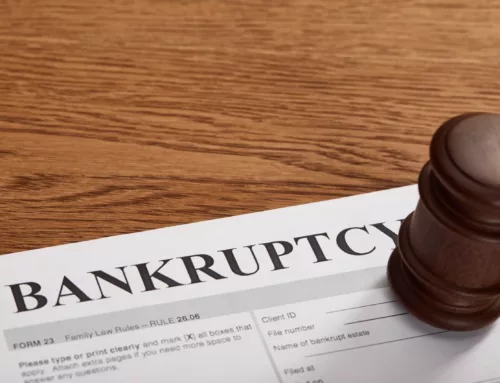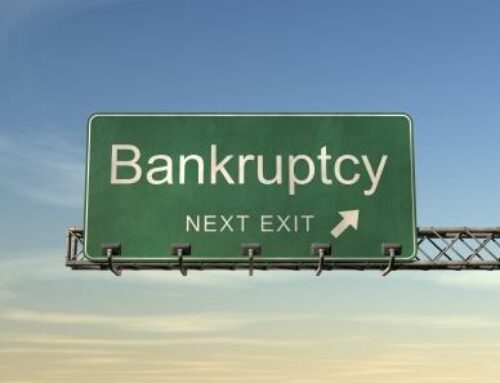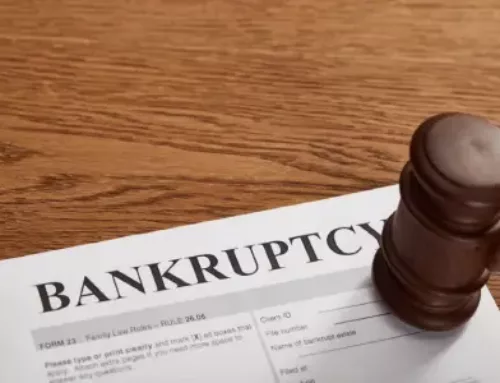Do I Need to File For Bankruptcy in Tacoma Washington?
You do not always get a “yes” or “no” answer when you ask someone if you should file bankruptcy in Tacoma, Washington. More often, people will respond, “File for bankruptcy only as a last resort!” This usually means, bankruptcies are the last straw if and only if you have already exhausted all available debt relief options and despite everything, you are still on the road to financial distress.
The reason people turn their backs on bankruptcy is because of the drawbacks it brings. More often than not, Americans perceive people who go bankrupt as failures. The scar bankruptcy leaves on one’s life is often brought about by the stigma associated with it all these years.
However, bankruptcy is more of a scab rather than a scar. With proper care and attention, a scab clears up and fades away, leaving little to no traces of a wound that it once was. Like a scab, when the bankruptcy process was treated with proper care and attention, there is a great chance for a debtor to get a fresh start. It is for this reason that bankruptcy laws are in place. It is meant to give people a second lease on life, at least on the financial aspect of their lives.
In Tacoma, Bankruptcy is one of the major decisions anybody makes in their lives. That being said, before you dive in, you must find out the reasons why you are even considering it. You also need to study the advantages and disadvantages of a bankruptcy filing.
Why Am I Filing Bankruptcy?
Medical debt is considered as the number one reason why Americans file for bankruptcy in Tacoma. An estimated 66.5% of all bankruptcies are tied to medical issues, followed by unaffordable mortgages (45%) and spending or living beyond one’s means (44.4%). Even if one has insurance, it is not enough to cover health-related bills. Worse, your health problem may even make it challenging to do your job resulting in you quitting or being let go by your employer. This imbalance on your income and expenses is an unfavorable consequence of mounting medical bills coupled with losing your job. Other situations can make bankruptcy a seemingly suitable option for the following reasons:
- You are undergoing divorce proceedings
- You are being sued by creditors in order to make you settle your debts.
- You are about to lose your home.
- You only have your credit card to pay for your purchases
- You have been maxing out your credit cards one by one because you just transfer balances from one to the other.
- You are being tempted to dip into your retirement account to cover the bills
Are there options other than a bankruptcy filing?
When you really think about it or when you keep your eyes open, you might find that there are other alternatives available to address your financial troubles.
There are other viable options you can consider before diving in bankruptcy. Credit counseling is one. Credit counselors will look at the state of your finances and enlighten you on the pros and cons of debt management programs such as debt consolidation or debt settlement.
You may also be considering living within your means. Tighten your belt by drawing the line on unnecessary purchases. You can also try taking a second job or selling off one of your assets to supplement your income or to pay the bills.
You can also look into negotiating your debt to more manageable terms and amounts. Maybe you may also evaluate if this is just a temporary slump and your situation may improve soon.
Another important thing to consider is if you have an incoming substantial amount of payables looming in the horizon. If so, you might want to hold off on paying that until you decide whether or not to file bankruptcy since those bills could be dismissed through bankruptcy.
Am I Eligible to File for Bankruptcy?
Chapter 7 and Chapter 13 are the two types of bankruptcies for individuals. Both have certain criteria to qualify:
Chapter 7 bankruptcy is more of liquidation and allows the debtor to clean out debts and get a completely fresh start. A bankruptcy court appoints a trustee who collects all of a debtor’s non-exempt assets and sells them to pay back the creditors. A debtor is allowed to keep what is known as exempt property. Considered exempt includes most retirement accounts, Social Security payments, and a certain amount of home equity. Chapter 7 bankruptcy works for low-income debtors with little or no assets with which to pay off their debts.
Chapter 13 bankruptcy is called reorganization because it allows Chapter 13 filers to pay off all or part of their debts in a span of three to five years. Your bankruptcy attorney will help you draft a proposed repayment plan, which must be approved by the bankruptcy court before your bankruptcy petition can proceed further. The purpose of the reorganization plan is to show how you will fully pay all priority claims, such as child support, unpaid wages, and taxes, within three to five years. Unsecured debts like credit card debts and medical bills may be partially paid over time. Chapter 13 bankruptcy works for individuals who make too much money to qualify for Chapter 7 bankruptcy, or for those who would stand to lose property that they would rather keep.
Can Bankruptcy Wipe Out All Debts?
One of the common misconceptions about bankruptcy in Tacoma is that it wipes out all debts. Unfortunately, some debts are not included in a bankruptcy discharge. These are student loans, child support, alimony, income taxes, debts to government agencies, debts for personal injury caused by driving while intoxicated and any court fines or penalties. On a positive note, Chapter 7 bankruptcy discharges credit card debt, medical bills, personal loans, lawsuit judgments and obligations from leases or contracts. Chapter 13 bankruptcy wipes out those debts, plus debts from a divorce (except support payments), debts for loans from a retirement plan.
If you are already retired and have no significant property, bankruptcy may no longer be necessary. If you have no considerable assets such as valuable property or money in the bank, you are already considered judgment proof. This means, your collectors can no longer collect anything from you no matter how much they pester you. Under the law, no one can go after your assets from social security, pension plans, 401(k) retirement savings, disability benefits, veterans benefits, alimony or support payments.
Do I Need to Work With a Tacoma Bankruptcy Attorney
Yes! You do not want to be stuck in a financial quagmire. When life throws you a curve-ball that turns your life upside down, it is best to look beyond the short-term effects of bankruptcy on your credit score and appreciate the long-term benefits it may have to regain your financial freedom.
Consulting an experienced bankruptcy attorney is one of the crucial first steps when considering filing for bankruptcy. You may be better guided and assisted throughout the whole process if you have a trusted bankruptcy attorney by your side. Call our bankruptcy attorneys at Northwest Debt Relief Law Firm (NWDRLF) for a free initial assessment of your case.











